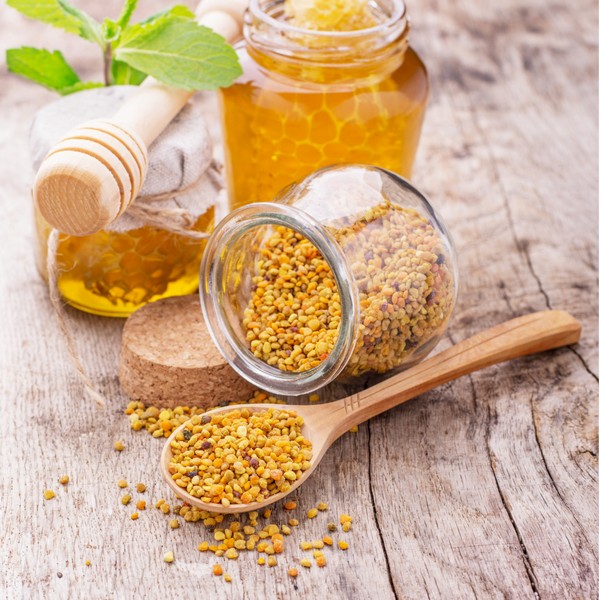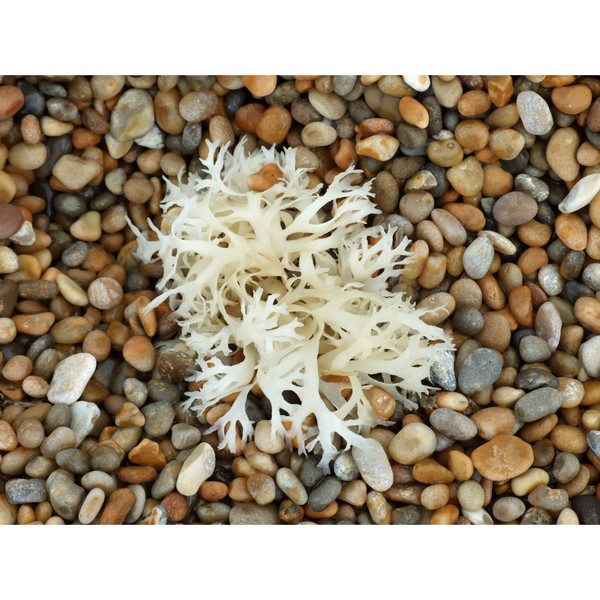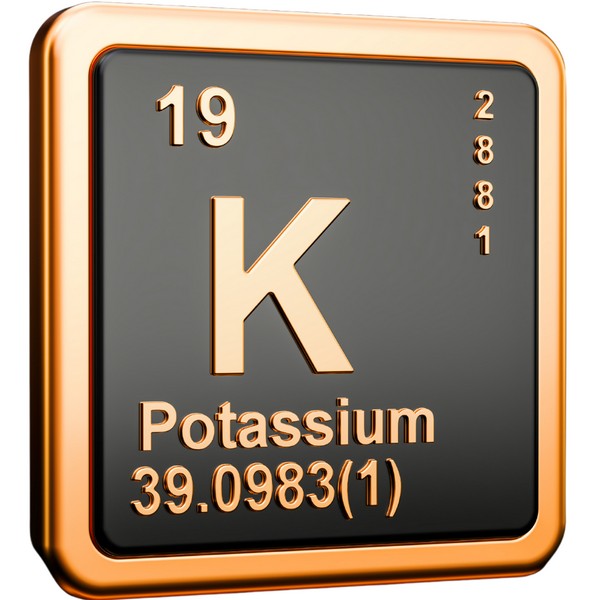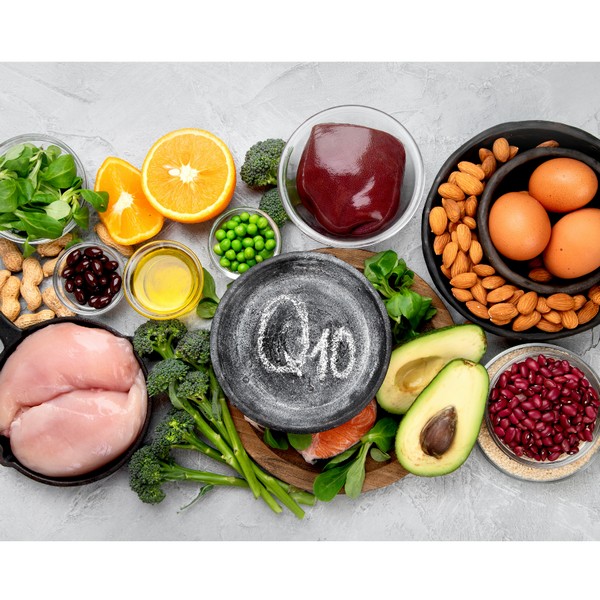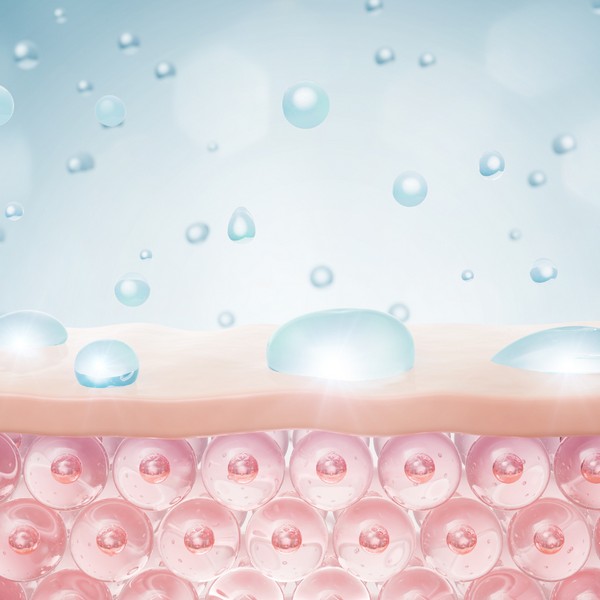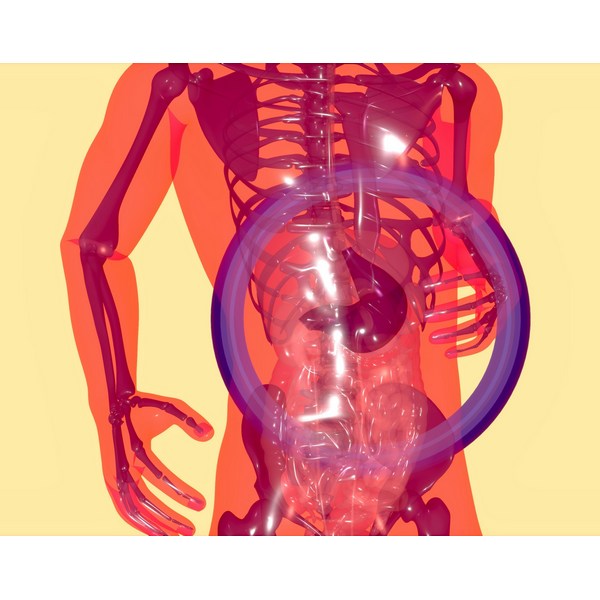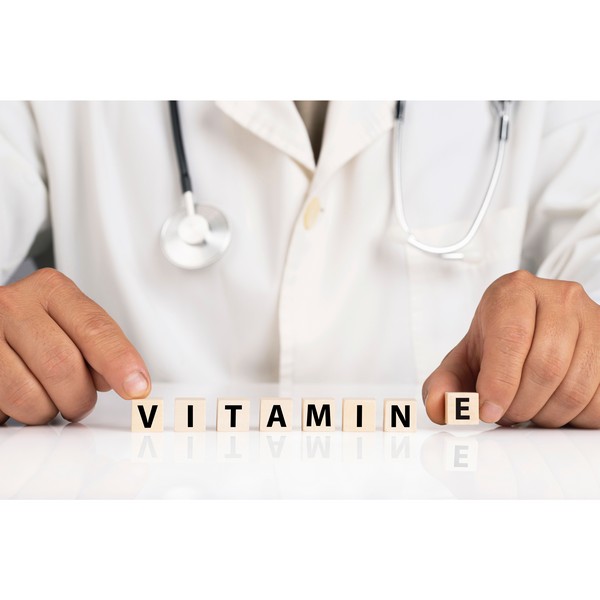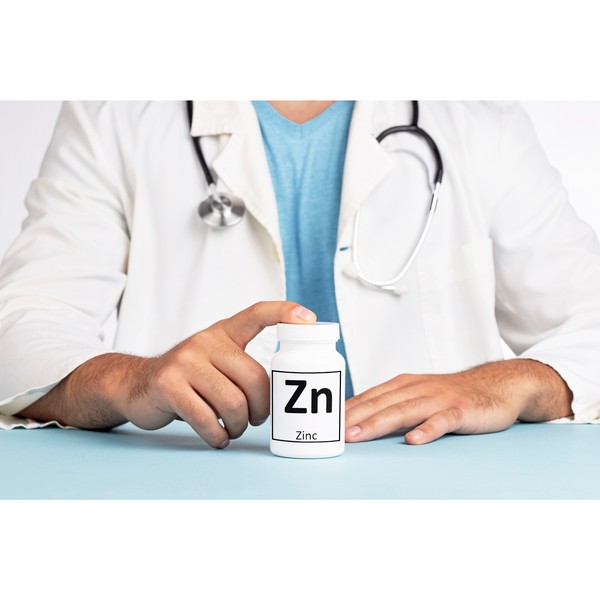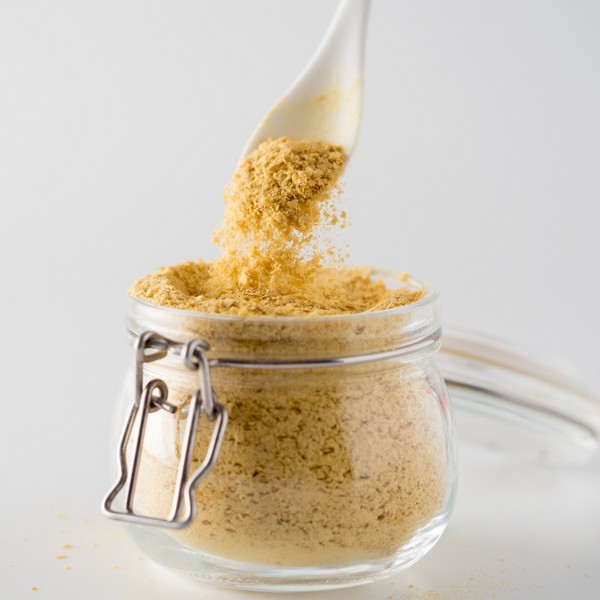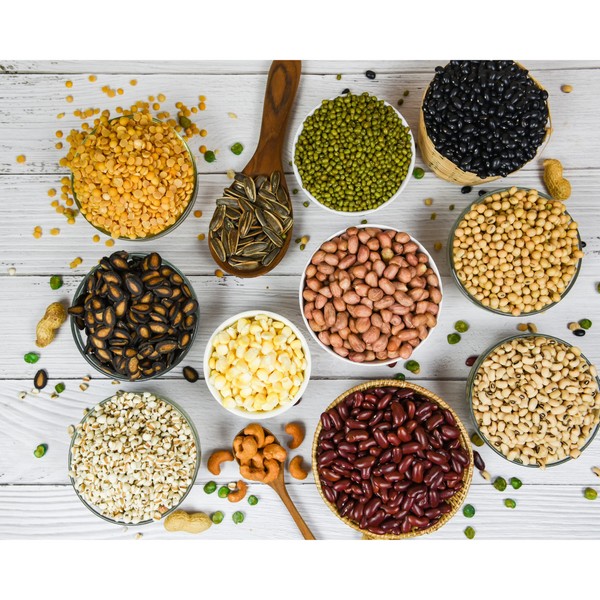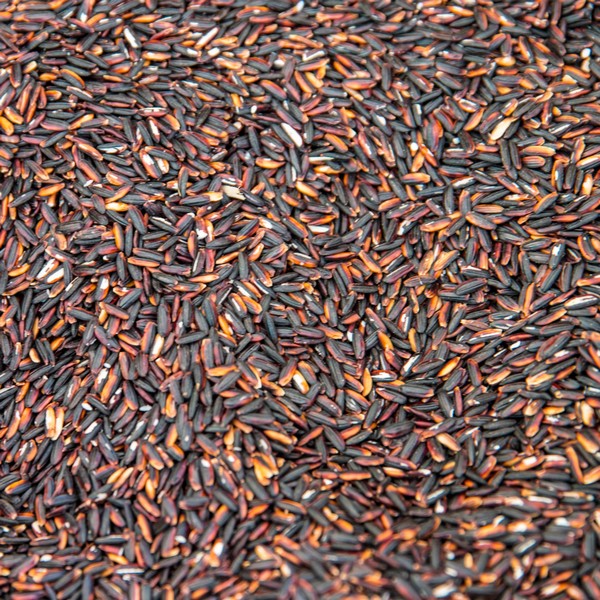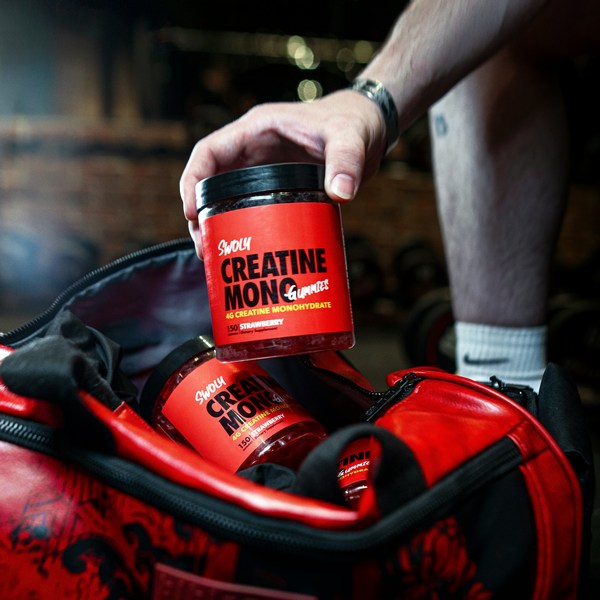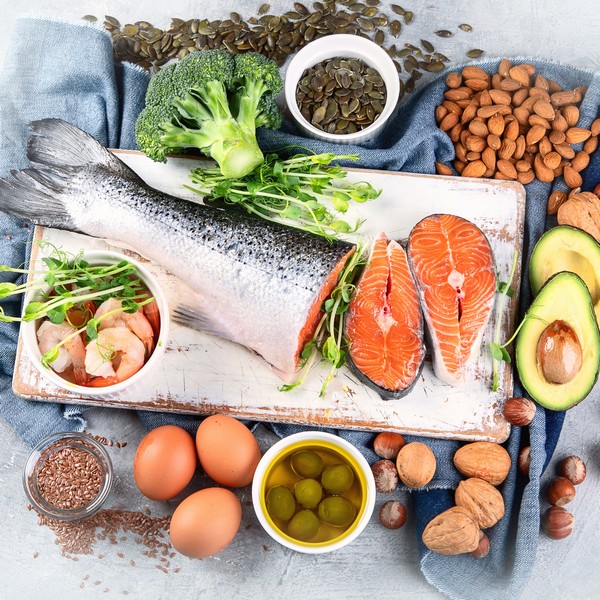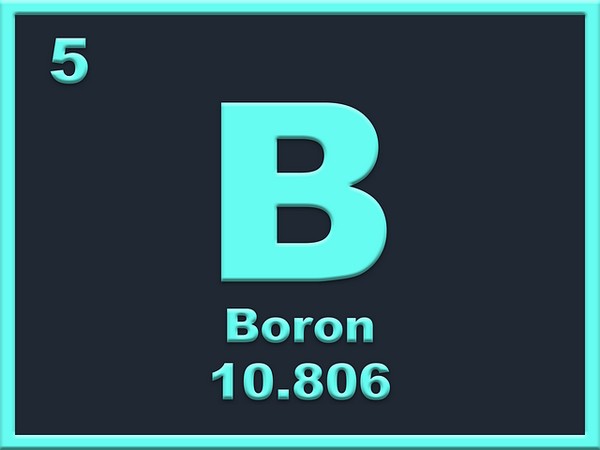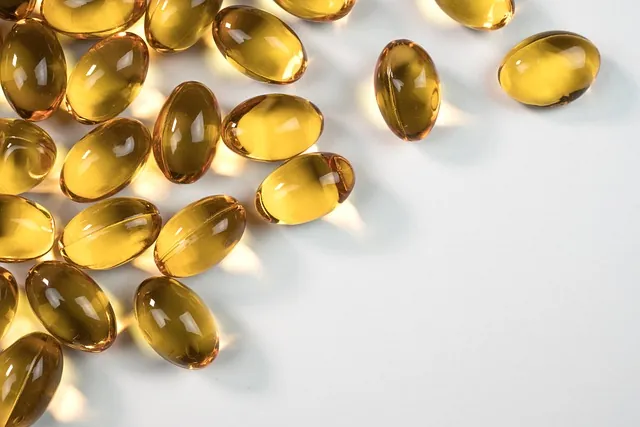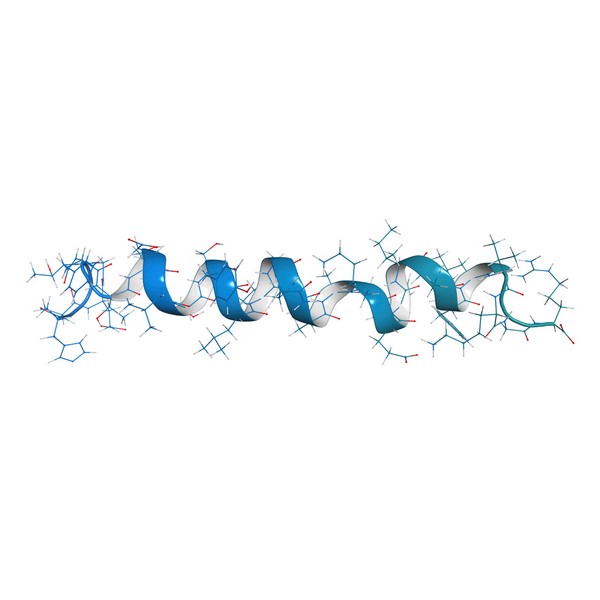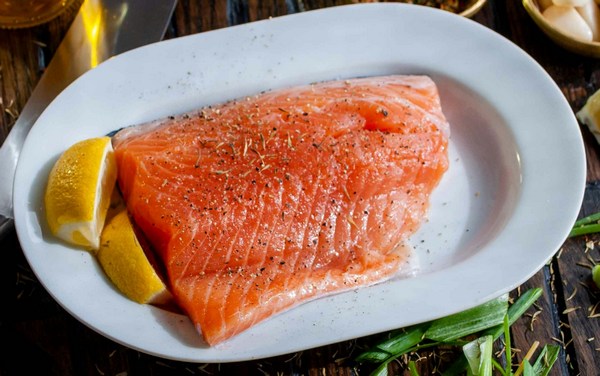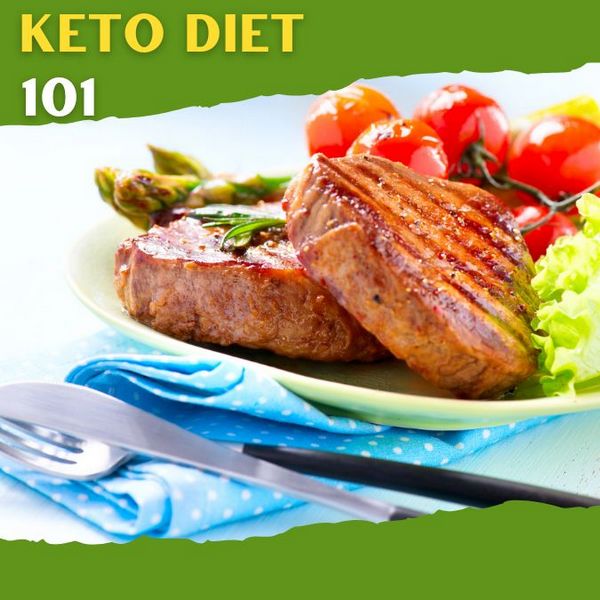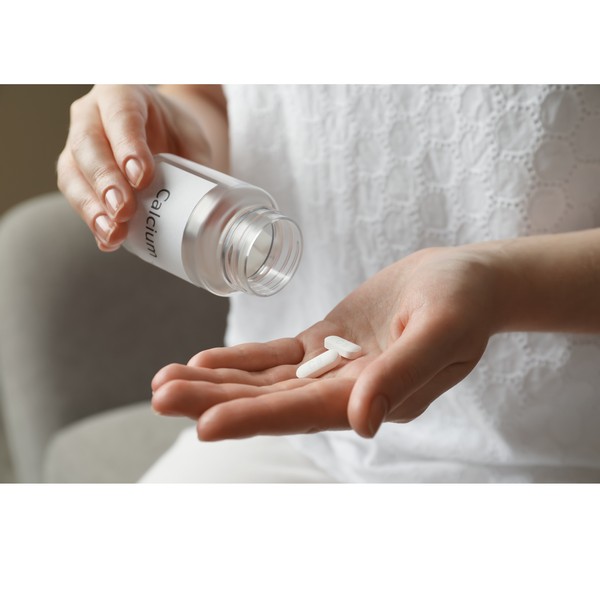Key Takeaways:
- 5-HTP is a natural compound that helps boost serotonin levels in the brain.
- It can support mood regulation, sleep improvement, and stress reduction.
- 5-HTP is commonly used as a supplement for anxiety, depression, and insomnia.
- Natural sources of 5-HTP are limited, but it’s found in the seeds of the African plant Griffonia simplicifolia.
- Proper balance of 5-HTP is important for avoiding potential side effects or interactions.
What is 5-Hydroxytryptophan (5-HTP)?
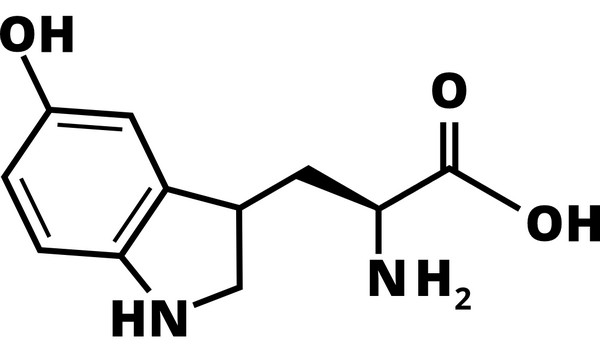
5-HTP is a naturally occurring compound in the body. It is a precursor to serotonin, meaning that it gets converted into serotonin, a neurotransmitter that influences mood, sleep, and overall mental well-being.
Low levels of serotonin have been linked to issues like anxiety, depression, and sleep disorders.
Benefits of 5-HTP

Mood Regulation and Anxiety Reduction
5-HTP helps increase serotonin levels in the brain, which can improve mood and reduce anxiety. Many people use it to alleviate mild depression, as it may help stabilize emotional swings by boosting serotonin availability.
Sleep Improvement
Since serotonin is involved in the production of melatonin, a hormone that regulates sleep, 5-HTP can also improve sleep quality. It is often used by those who have trouble falling asleep or experience insomnia.
Stress and Mental Health Support
Stress is commonly linked to low serotonin levels, and 5-HTP may help by boosting this neurotransmitter. This can support overall mental health and make it easier to cope with daily stress.
Natural Sources of 5-HTP

While 5-HTP itself isn’t found in large quantities in most common foods, tryptophan, the main precursor to 5-HTP, is abundant in many animal-based foods.
Foods high in tryptophan naturally help the body produce more 5-HTP and, subsequently, serotonin.
Some of the richest sources of tryptophan include grass-fed beef, pasture-raised eggs, wild-caught salmon, turkey, and raw milk.
Prioritizing these nutrient-dense, natural food sources can help boost 5-HTP production in a safer, more balanced way, reducing the need for supplements.
Supplementation of 5-HTP
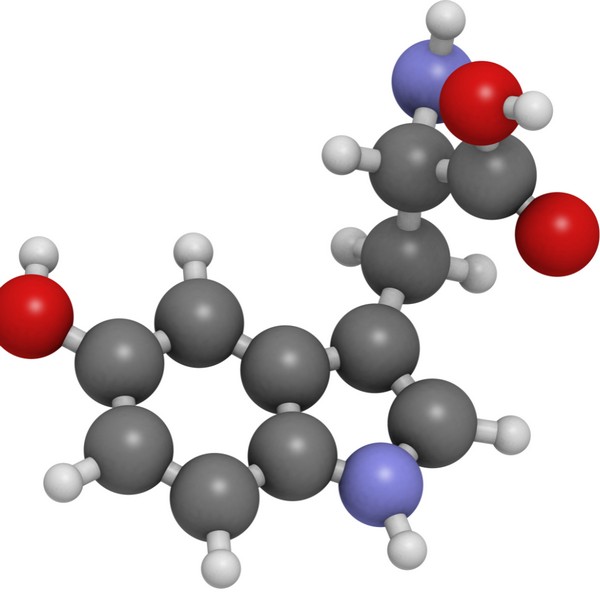
While supplements are available, turning to natural food sources of tryptophan is a better approach for most people.
Tryptophan-rich foods such as eggs, meat, and fish allow your body to naturally produce 5-HTP without the risks associated with supplementation.
However, for individuals with specific needs or when food sources are insufficient, 5-HTP supplements can be considered.
Always start with low doses (50-100 mg) and adjust based on personal needs, but it’s best to prioritize whole, nutrient-rich foods first.
Risks and Side Effects of 5-HTP
Some side effects of 5-HTP include nausea, digestive discomfort, or headaches, especially when taken in large amounts.
Consult with a healthcare provider before using 5-HTP, particularly if you are already taking antidepressants or medications that affect serotonin, as this could lead to serotonin syndrome, a potentially dangerous condition.
Conclusion
5-HTP offers a natural way to support serotonin production, which can improve mood, sleep, and mental health. Whenever possible, choose food-based sources of tryptophan, which allow the body to naturally regulate its production of 5-HTP. If supplementation is needed, use it cautiously and with professional guidance to avoid potential side effects or interactions with medications.
FAQ Section
What is 5-HTP used for?
5-HTP is commonly used for improving mood, reducing anxiety, and aiding sleep by increasing serotonin levels.
Are there any natural sources of 5-HTP?
While direct sources of 5-HTP are limited, tryptophan, found in foods like grass-fed beef, eggs, wild-caught salmon, turkey, and raw milk, acts as a natural precursor.
Can 5-HTP help with sleep problems?
Yes, 5-HTP supports melatonin production, which can help regulate sleep and improve insomnia. However, focusing on tryptophan-rich foods is a safer and more sustainable method.
Are there risks to taking 5-HTP supplements?
Potential side effects include nausea and digestive issues. High doses may cause serotonin syndrome when combined with certain medications. Food sources of tryptophan are less likely to cause these problems.
How much 5-HTP should I take?
It’s generally better to focus on food-based sources of tryptophan. If supplementation is required, start with a low dose (50-100 mg) and adjust with professional advice.
Research
Adekunle, H. and Balogun, O., 2024. Tryptophan and HTP supplementation in the treatment of cognitive and mood disorders: A systematic review and meta-analysis. [online] https://doi.org/10.21203/rs.3.rs-5033259/v1.
Abdala-Valencia, H., Berdnikovs, S., McCary, C. A., Urick, D., Mahadevia, R., Marchese, M. E., Swartz, K., Wright, L., Mutlu, G. M., & Cook-Mills, J. M. (2012). Inhibition of allergic inflammation by supplementation with 5-hydroxytryptophan. American Journal of Physiology-Lung Cellular and Molecular Physiology.
https://doi.org/L-00406-2011
Das, Y. T., Bagchi, M., Bagchi, D., & Preuss, H. G. (2004). Safety of 5-hydroxy-l-tryptophan. Toxicology Letters, 150(1), 111-122.
https://doi.org/10.1016/j.toxlet.2003.12.070
Fukuda, K. (2014). 5-HTP hypothesis of schizophrenia. Medical Hypotheses, 82(1), 20-23. https://doi.org/10.1016/j.mehy.2013.10.026
Imura, H., Nakai, Y., & Yoshimi, T. (1973). EFFECT OF 5-HYDROXYTRYPTOPHAN (5-HTP) ON GROWTH HORMONE AND ACTH RELEASE IN MAN. The Journal of Clinical Endocrinology & Metabolism, 36(1), 204-206. https://doi.org/10.1210/jcem-36-1-204
Javelle, F., Lampit, A., Bloch, W., Häussermann, P., Johnson, S. L., & Zimmer, P. (2020). Effects of 5-hydroxytryptophan on distinct types of depression: A systematic review and meta-analysis. Nutrition Reviews, 78(1), 77-88. https://doi.org/10.1093/nutrit/nuz039
Kious, B. M., Sabic, H., Sung, Y. H., Kondo, D. G., & Renshaw, P. (2017). An open-label pilot study of combined augmentation with creatine monohydrate and 5-hydroxytryptophan for SSRI-or SNRI-resistant depression in adult women. Journal of clinical psychopharmacology, 37(5), 578.
Maffei, M. E. 5-Hydroxytryptophan (5-HTP): Natural Occurrence, Analysis, Biosynthesis, Biotechnology, Physiology and Toxicology. International Journal of Molecular Sciences, 22(1), 181. https://doi.org/10.3390/ijms22010181
Nakamura, K., & Hasegawa, H. (2009). Production and Peripheral Roles of 5-HTP, a Precursor of Serotonin. International Journal of Tryptophan Research. https://doi.org/10.4137/IJTR.S1022
Rondanelli, M., Opizzi, A., Faliva, M., Bucci, M., & Perna, S. (2012). Relationship between the absorption of 5-hydroxytryptophan from an integrated diet, by means of Griffonia simplicifolia extract, and the effect on satiety in overweight females after oral spray administration. Eating and Weight Disorders-Studies on Anorexia, Bulimia and Obesity, 17(1), e22-e28.
Sarris, J., Murphy, J., Mischoulon, D., Papakostas, G.I., Fava, M., Berk, M. and Ng, C.H., 2016. Adjunctive Nutraceuticals for Depression: A Systematic Review and Meta-Analyses. American Journal of Psychiatry, [online] 173(6), pp.575–587. https://doi.org/10.1176/appi.ajp.2016.15091228.
Sharma, A., Castellani, R. J., Smith, M. A., Muresanu, D. F., Dey, P. K., & Sharma, H. S. (2019). 5-Hydroxytryptophan: A precursor of serotonin influences regional blood-brain barrier breakdown, cerebral blood flow, brain edema formation, and neuropathology. In International Review of Neurobiology (Vol. 146, pp. 1-44). Academic Press.
Sutanto, C. N., Xia, X., Heng, C. W., Tan, Y. S., Lee, D. P. S., Fam, J., & Kim, J. E. (2024). The impact of 5-hydroxytryptophan supplementation on sleep quality and gut microbiota composition in older adults: A randomized controlled trial. Clinical Nutrition, 43(3), 593-602.
https://doi.org/10.1016/j.clnu.2024.01.010
Turner, E. H., Loftis, J. M., & Blackwell, A. D. (2006). Serotonin a la carte: Supplementation with the serotonin precursor 5-hydroxytryptophan. Pharmacology & Therapeutics, 109(3), 325-338. https://doi.org/10.1016/j.pharmthera.2005.06.004
Wang, S., van Schooten, F.-J., Jin, H., Jonkers, D. and Godschalk, R., 2023. The Involvement of Intestinal Tryptophan Metabolism in Inflammatory Bowel Disease Identified by a Meta-Analysis of the Transcriptome and a Systematic Review of the Metabolome. Nutrients, [online] 15(13), p.2886. https://doi.org/10.3390/nu15132886.
Zamoscik, V., Schmidt, S. N., Bravo, R., Ugartemendia, L., Plieger, T., Rodríguez, A. B., Reuter, M., & Kirsch, P. (2021). Tryptophan-enriched diet or 5-hydroxytryptophan supplementation given in a randomized controlled trial impacts social cognition on a neural and behavioral level. Scientific Reports, 11(1), 1-11.
https://doi.org/10.1038/s41598-021-01164-y
Bee Pollen: Nature’s Secret Superfood
Key Takeaways Bee pollen is packed with essential nutrients and offers numerous health benefits. It supports immune function, boosts energy, and promotes overall well-being. Adding…
Benefits of Sea Moss Explained
Key Takeaways Rich in Nutrients: Sea moss is packed with essential vitamins, minerals, and antioxidants, supporting overall health and wellness. Supports Immune Function: Its high…
Potassium: Benefits & Sources
Key Takeaways Potassium is essential for regulating fluid balance, nerve signals, and muscle function. It supports heart health and helps maintain proper blood pressure. Adequate…
6 Best Natural Ways to Manage Your Blood Sugar: A Quick & Easy Guide
1. Intermittent fasting2. Exercise3. Dietary fiber4. Sleep5. Weight loss6. SupplementationBioclinic NaturalsPGX BiotiquestSugar Shift Every time you eat it, it’s plotting something sinister. Sugar isn’t as…
Liver: 5 Surprising Benefits Backed by Science
Hold on! Don’t run away! You need to read this. Liver is a highly nutritious organ meat that is often overlooked in modern diets. Packed…
Magnesium: Better Sleep, Stress Relief and More
Healthy Fat: is Butter Better?
Key Takeaways Saturated fats, like those found in butter, may not be as harmful as once thought and can be part of a healthy diet….
What You Need to Know About Salt and Your Health
Table of ContentsThe Health Benefits of Unrefined Sea SaltElectrolyte BalanceMineral ContentImproved HydrationBoosted Energy LevelsImmune SupportImproved DigestionBalanced pH LevelsReduced Water RetentionHeart Health SupportStronger Bones and TeethEnhanced…
CoQ10: What Is It and Why Is It Important?
Key Takeaways CoQ10 (Coenzyme Q10) is an antioxidant produced by the body, essential for energy production in cells. Levels of CoQ10 naturally decrease with age…
8 Key Signs of Nutrient Deficiency
Key Takeaways Magnesium: A multitasker that aids in over 300 biochemical reactions in the body. Copper: Supports neurological function, cardiovascular and immune system health, iron…
Is Eating Sugar Really That Bad For Your Health?
Should You Really Be Concerned? In short, YES! Thank you, that’s all folks, and do have a good evening. Seriously though, extensive research has established…
How Collagen Supports Healthy Skin, Joints, and More
Silica: for Healthier Skin, Hair, and Nails
Key Takeaways: Silica supports strong and healthy skin, hair, and nails. It promotes bone health by boosting collagen production. Silica helps improve joint flexibility and…
Taurine: The Mighty Amino Acid for Optimal Health
Key Takeaways Taurine supports heart health, regulates blood pressure, and reduces oxidative stress. Essential for muscle function, brain health, and cognitive function. Aids in insulin…
L-Carnitine: Benefits, Dosage, and Side Effects
Key Takeaways L-Carnitine supports fat metabolism and energy production. Benefits include enhanced exercise performance and improved heart health. Proper dosing minimizes potential side effects. Understanding…
11 Electrifying Health Benefits of Trace Minerals
What are Trace Minerals?The Major Roles of Trace MineralsSources of Trace MineralsDeficiencies in Trace MineralsThe Impact of Trace Minerals on Specific Health ConditionsFrequently Asked Questions…
The Impact of Ultra-Processed Foods on Your Wellbeing
Every bite we take is a step toward either wellness or illness. In our fast-paced world, ultra-processed foods have become a staple, silently shaping our…
Medium Chain Triglycerides (MCTs): Uncovering 5 Health Benefits
This potent, natural source of energy has gained considerable attention in recent years for its impressive array of benefits. MCT oil is a versatile addition…
TUDCA Benefits for Health
Key Takeaways TUDCA promotes liver health, aiding cell protection and repair. Enhances digestion by improving bile flow and supporting gut health. May protect brain health…
Protein: You probably need more
Key Takeaways Protein is needed for building and repairing body tissues. It supports muscle growth, immune function, and hormone production. Bioavailable sources of protein include…
Eggs: A Comprehensive Guide
Key Highlights Eggs are a nutritional powerhouse, containing all the essential vitamins and minerals needed for overall health. Vital role in a balanced diet, providing…
Copper: Little-Known Health Benefits
Key Takeaways Copper is an essential trace mineral with benefits, including ceruloplasmin production, energy production and antioxidant properties. Copper is critical for brain health by…
Whole Food Vitamin C Complex: Expert Tips for Health
Key Highlights Whole food vitamin C complex is essential for a strong immune system and overall health. Unlike synthetic ascorbic acid, whole food vitamin C…
Vitamin E Complex
Key Takeaways Vitamin E is a powerful antioxidant that protects cells from oxidative damage, reducing the risk of chronic diseases. The vitamin E complex includes…
Zinc Supplements: Risks and Dangers
Key Takeaways Zinc supports immunity, wound healing, and cell growth. High zinc supplement doses can cause health problems. Always consult a healthcare provider before taking…
Tallow: Benefits, Uses, and Nutrition
Key Takeaways: Tallow is a nutrient-rich animal fat with many practical uses. It contains valuable vitamins such as A, D, E, and K. Tallow is…
Benefits of Nutritional Yeast
Key Takeaways Nutritional yeast is a rich source of vitamins and minerals. It supports immune function and promotes skin health. Its cheesy flavor makes it…
L-Glutamine and Gut Health: Benefits and Side Effects
Key Takeaways L-Glutamine is essential for gut health. Benefits include improved digestion and reduced inflammation. Potential side effects are rare but can occur in high…
Cholesterol Misconceptions: Separating Fact from Fiction
Key Takeaways: High inflammation and blood pressure are major risk factors for heart disease. Cholesterol is vital for hormone production, cell membrane structure, and digestion,…
Trimethylglycine TMG: Betaine Anhydrous Explained
Key Takeaways Betaine Anhydrous (TMG) is a compound found naturally in various foods and offers several health benefits. TMG supports liver health by reducing fatty…
Spirulina: Health Benefits and Uses
Key Takeaways Spirulina boosts immune function with its high nutrient content and antioxidant properties. Rich in proteins and essential vitamins, enhances overall nutrition. Helps reduce…
Do This! The Ultimate Guide to Fasting Safely and Effectively
In our increasingly busy lives, finding time to take care of our bodies can often take a backseat. One method that has gained attention recently…
Postbiotics: What They Are and Why They Are Important
Key Takeaways Postbiotics 101: They’re beneficial by-products from probiotics that consume prebiotics Boosts Immunity: Postbiotics sharpen your immune system, helping fight off pathogens and reducing…
Vitamin A (Retinol): Essential Nutrient for Health
Key Takeaways: Natural Vitamin A, also known as Retinol, is crucial for vision, immune function, and skin health. Retinol is essential for healthy vision, particularly…
Berberine Has 11 More Incredible Benefits Than You Thought
Berberine is a compound found in several plants that has been used for centuries in traditional Chinese medicine and Ayurveda. It has recently gained popularity…
Grains & Legumes Secretly Harming Your Health? Find Out Now!
Key Takeaways: – Grains and legumes contain antinutrients like lectins and phytic acid, which can interfere with nutrient absorption. – These foods may trigger digestive…
How Stabilized Rice Bran Supports Digestive & Heart Health
Key Takeaways – Stabilized rice bran is a nutrient-rich source of vitamins, minerals, and antioxidants. – The stabilization process prevents rancidity, making it a long-lasting…
Natural Treatment for Irritable Bowel Syndrome (IBS): Effective Remedies Explored
Understanding IBSSymptoms of IBSRole of Diet in IBSNatural Remedies for IBSSupplements for IBSRole of Probiotics in IBSFrequently Asked Questions Understanding IBS Irritable Bowel Syndrome (IBS)…
Carnivore Diet: Benefits, Risks, Food List & More
Key Takeaways The carnivore diet is a keto diet that only allows for animal-based foods, and has potential health benefits. Tips for success include hydrating,…
Creatine Myths Debunked: Separating Fact from Fiction
Key Takeaways Common myths about creatine, such as it causing kidney damage, weight gain, and being a steroid, are widespread but unsupported by scientific evidence….
ALA vs. DHA & EPA Omega-3: Why Source Matters
Key Takeaways ALA (Alpha-Linolenic Acid) is found in flaxseeds, chia seeds, and walnuts, but converts poorly to DHA and EPA. DHA and EPA are critical…
Iron Overload: Symptoms & Prevention Tips
Key Takeaways: Iron overload happens when the body absorbs excessive iron, which can damage organs. Common symptoms include fatigue, joint pain, and skin changes. Early…
Boron: Benefits of a Lesser-Known Mineral
Key Takeaways Boron is a trace mineral with significant health benefits. It supports brain function, bone health, and hormonal balance. Understanding boron’s role can improve…
13 Most Dangerous Foods Revealed
Key Highlights Fugu, or pufferfish, is one of the most poisonous foods in the world, with its organs containing a neurotoxin that can paralyze motor…
Red Palm Oil: Unveiling The Potent Health Benefits
Struggling to find the right oil for your health and kitchen? Red palm oil is packed with nutrients that might just be what you need….
How Cod Liver Oil Can Transform Your Health and Wellness
Cod liver oil has been used for centuries as a natural remedy for various health conditions. Packed with essential nutrients and fatty acids, cod liver…
Increase GLP-1 Agonists Naturally
Key Takeaways: GLP-1 agonists regulate appetite, insulin production, and blood sugar levels. Regular exercise and quality sleep maintain optimal GLP-1 levels. High-protein, low-carb diets effectively…
Allulose: The Best Sugar Alternative
Key Takeaways Allulose is a low-calorie sweetener found naturally in some fruits. It does not raise blood sugar levels, making it suitable for diabetics. Allulose…
5 Major Benefits of Omega-3 Fatty Acids
Key Takeaways Omega-3 fatty acids support heart health by reducing triglycerides and lowering blood pressure. They play an important role in brain function and development,…
Actual Superfoods: Real Foods You Should Be Eating
Key Takeaways Superfoods are nutrient-dense foods, offering essential vitamins, minerals, and fats. Prioritize high-quality sources for optimal nutrition. They support overall health, boost energy, and…
Keto Diet 101: A Complete Beginner’s Guide
Key Highlights The ketogenic diet is a low-carb, high-fat diet that can lead to weight loss and has many health benefits. By reducing carbohydrate intake…
Conjugated Linoleic Acid (CLA): Benefits & Sources
Key Takeaways CLA is a type of fatty acid found primarily in animal products like beef and dairy. Known for potential benefits such as weight…
Calcium Supplements: What You Need to Know
Key Takeaways Calcium supplements have been linked to heart disease and kidney stones. Excess calcium from supplements can lead to imbalances and health issues. Natural…
7 Healthy Habits to Maintain While Traveling
Key Highlights Stay hydrated, eat well, and stay active during travel. Ensure restful sleep, practice…
The EWG Dirty Dozen: What You Need to Know
Key Takeaways The Dirty Dozen list highlights fruits and vegetables with the highest levels of…
How Collagen Supports Healthy Skin, Joints, and More
Key Takeaways Collagen is the most abundant protein in the body, supporting the structure of…
9 Best Cutting Supplements for a Shredded Physique
Key Highlights Pay attention to ingredients and their benefits, as well as select high-quality supplements…
Vitamin A (Retinol): Essential Nutrient for Health
Key Takeaways: Natural Vitamin A, also known as Retinol, is crucial for vision, immune function,…
Keto Diet 101: A Complete Beginner’s Guide
Key Highlights The ketogenic diet is a low-carb, high-fat diet that can lead to weight…
Born a Crime by Trevor Noah
Key Takeaways Trevor Noah’s biracial identity in apartheid South Africa was illegal, making his existence…
The Ministry of Time by Kaliane Bradley
Key Takeaways The Ministry of Time blends time travel romance, spy thriller, and workplace comedy….
7 Simple Tips for Lowering Blood Pressure Naturally
Maintaining healthy blood pressure levels is essential for overall well-being, as high blood pressure can…
Gout: Symptoms & Natural Treatment
Key Takeaways Gout results from the accumulation of uric acid crystals in the joints, causing…
How To Optimize Your Weight Loss Efforts
1. Get Your Beauty Sleep for Optimal Weight Loss2. Natural Solutions for Weight Loss3. Stress…
